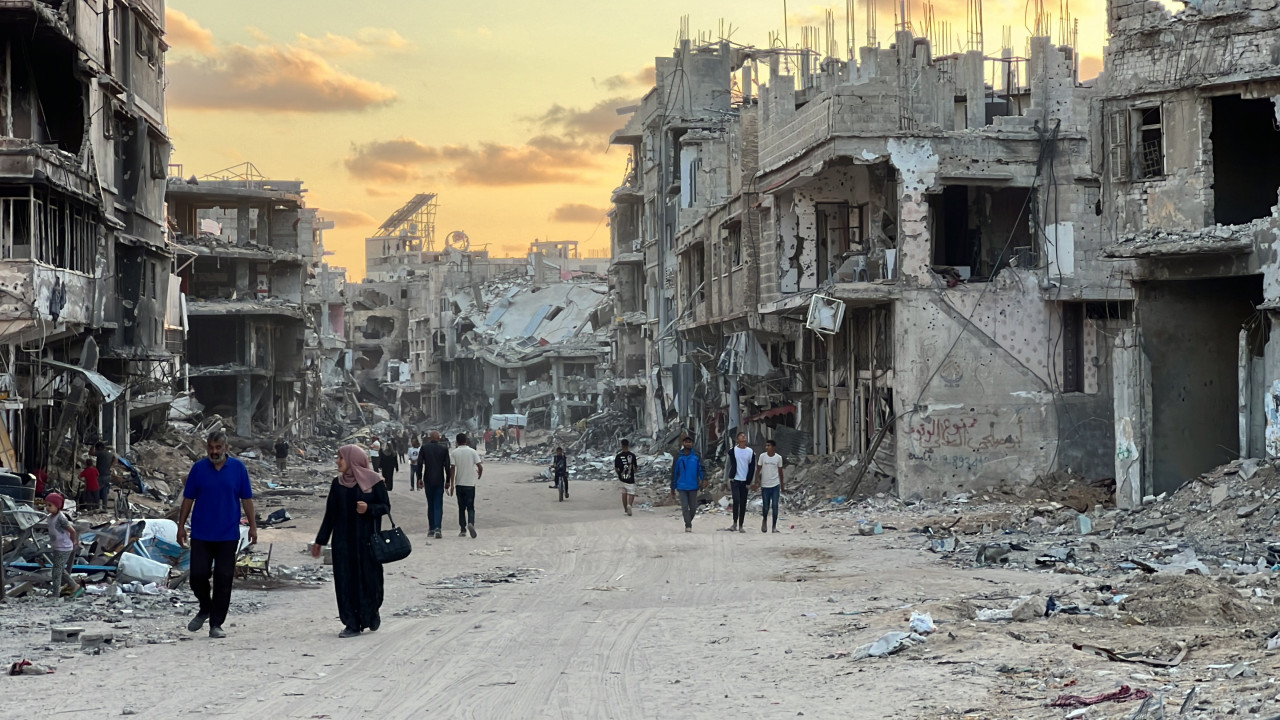
EIn a statement, the non-governmental organization for the defense of human rights stressed that “a new investigation reveals that Israel did not take “possible precautions” to protect civilians in the attacks it carried out in the southern Gaza Strip, as it had been urged to do by the UN and other international institutions.
“In two attacks targeting Hamas and Islamic Jihad commanders and fighters in the southern occupied Gaza Strip in May, Israeli forces failed to take all possible precautions to avoid or minimize harm to civilians in IDP camps,” Amnesty said.
According to the organization, these “attacks were indiscriminate and one of them was also disproportionate”, which is why “both should be investigated as war crimes”.
“On 26 May (…), two Israeli airstrikes on the (so-called) ‘Kuwait peace camp’, a makeshift camp for internally displaced people in Tal al-Sultan, west of Rafah, killed at least 36 people — including six children — and injured more than 100”, Amnesty indicated, specifying that “at least four of the fatalities were combatants”.
The airstrikes, “which targeted two Hamas commanders who were among displaced civilians, consisted of two American-made GBU-39 guided bombs.”
For Amnesty, “the use of these munitions, which project deadly fragments over a large area, in a camp housing civilians in overcrowded temporary shelters, may have constituted a disproportionate and indiscriminate attack and should be investigated as a war crime”.
On May 28, in the second incident under investigation, “the Israeli military fired at least three shells at a location in the al-Mawasi area of Rafah, which has been designated by the Israeli military as a ‘humanitarian zone.’
These attacks killed “23 civilians — 12 of whom were children, seven women and four men — and injured many more.”
“Amnesty International’s investigation revealed that the apparent targets (…) were a Hamas fighter and an Islamic Jihad fighter. [e que] This attack, which failed to distinguish between civilian and military targets, using unguided munitions in an area full of civilians sheltering in tents, may have been indiscriminate and should be investigated as a war crime,” reads the organization’s statement.
Amnesty also finds that Hamas and Islamic Jihad fighters “knowingly endangered the lives of civilians” by being in the IDP camp, “a location believed to be a designated ‘humanitarian zone’”, and that “their choice of location in both IDP camps likely violated the obligation to avoid, as far as possible, deploying fighters in densely populated areas”.
“While these attacks may have targeted Hamas and Islamic Jihad commanders and fighters, once again, displaced Palestinian civilians seeking shelter and safety paid with their lives,” said Erika Guevara-Rosas, Amnesty International’s Director of Research, Advocacy, Policy and Campaigns.
“The Israeli military would have been fully aware that the use of bombs that project deadly shrapnel hundreds of meters away and unguided tank shells would kill and injure a large number of civilians sheltering in overcrowded and unprotected areas,” which is why “they could and should have taken all possible precautions to avoid, or at least minimize, the harm caused to civilians,” Guevara-Rosas argued.
According to the official, “the avoidable deaths and injuries of civilians are a tragic and stark reminder that, under international humanitarian law, the presence of combatants in the targeted area does not absolve the Israeli military of its obligation to protect civilians.”
“All parties to the conflict must take all possible precautions to protect civilians,” he said, adding that this “also includes the obligation of Hamas and other armed groups to avoid, to the extent possible, locating military objectives and fighters in or near densely populated areas.”
In the note, Amnesty International says it interviewed 14 survivors and witnesses, investigated the sites of the attacks, visited a hospital in Khan Yunis where the injured were receiving treatment, photographed remains of ammunition used in the attacks for identification and examined satellite images of the sites, having also analyzed “relevant statements by the Israeli military about the attacks”.
Furthermore, on June 24, the organization also sent “questions to the Israeli authorities about the two incidents in these attacks”, and on July 5 “also addressed questions to the attorney general and to the officials of the Ministry of Justice of the de facto Hamas Administration [na Faixa de Gaza]questioning them about the presence of commanders and fighters in these civilian areas.”
However, Amnesty indicated that, “as of the date of publication of this statement, no responses have been received”.
On October 7th last year, Israel declared war on the Gaza Strip to “eradicate” Hamas, hours after it carried out an attack of unprecedented proportions on Israeli territory, killing 1,194 people, most of them civilians.
In power in Gaza since 2007 and classified as a terrorist organization by the United States, the European Union and Israel, the Islamic Resistance Movement (Hamas) also took 251 hostages that day, 111 of whom remain in captivity and 41 have died in the meantime, according to the most recent report by the Israeli Army.
The war, which today entered its 325th day and continues to threaten to spread to the entire Middle East region, has so far left at least 40,435 dead in the Gaza Strip (almost 2% of the population) and 93,534 injured, in addition to more than 10,000 missing, most of them civilians, presumably buried in the rubble after more than ten and a half months of war, according to updated figures from local authorities.
The conflict has also displaced around 1.9 million people, plunging the overpopulated and impoverished Palestinian enclave into a serious humanitarian crisis, with more than 1.1 million people in a “catastrophic famine situation” that is claiming victims – “the highest number ever recorded” by the UN in studies on food security in the world.
Read Also: Israel says it found explosives in UN agency bags

Download our free App.
Eighth consecutive year Consumer Choice for Online Press and elected product of the year 2024.
* Study by Netsonda, Nov. and Dec. 2023 productoftheyear- pt.com
Source: https://www.noticiasaominuto.com/mundo/2621654/rafah-ataques-contra-civis-devem-ser-investigados-como-crimes-de-guerra



